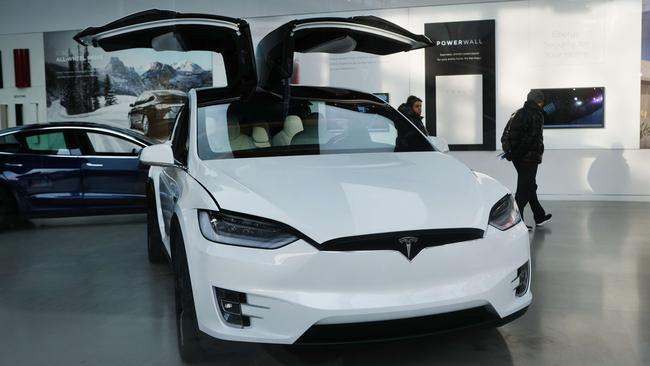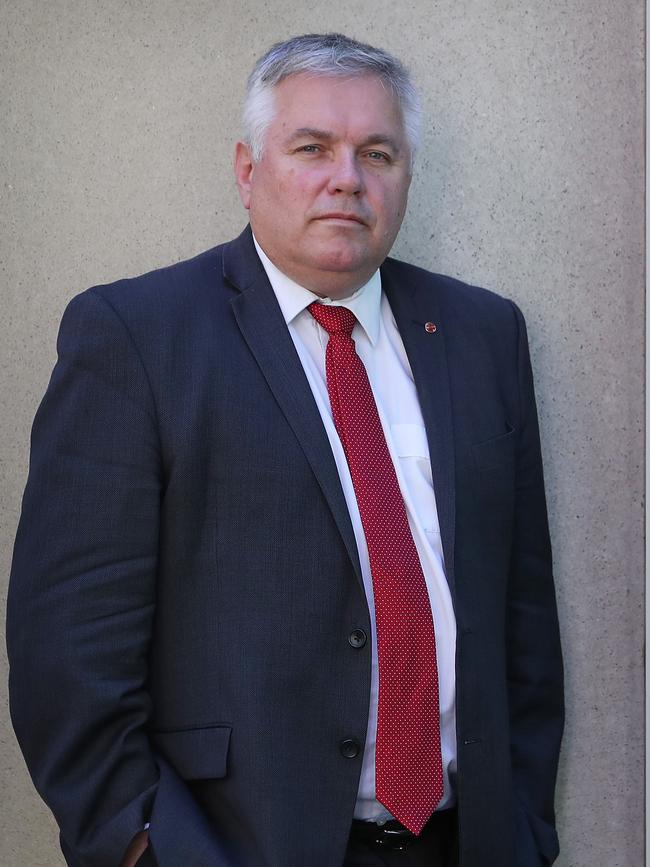SA Budget 2020: Electric vehicle charge set to fail as Labor comes out against it
The plug appears to have already been pulled on a plan to slug electric vehicle owners a user charge, with Labor and crossbench MPs flagging their opposition to it.
SA News
Don't miss out on the headlines from SA News. Followed categories will be added to My News.
A controversial proposal to slug electric vehicle owners a user charge already appears dead, with the Opposition, Greens and SA-Best opposed to legislation for it to be introduced.
Under the plan unveiled in Tuesday’s State Budget, from July next year electric vehicle owners would be required to pay a fixed charge similar to annual registration, and a variable charge based on distance travelled.
SA would become the first jurisdiction to introduce such a charge, which has been designed to ensure electric vehicles contribute to future road maintenance costs. Unlike fuel excise it would be collected by the state rather than the federal government and is forecast to initially generate only $1 million in revenue a year.
Opposition Leader Peter Malinauskas said the proposed charge risked stymieing the growing market, hurting the environment and setting a dangerous precedent for a distance-based charging scheme to be applied across all vehicles.
“As a state, we must be doing everything we can to support sectors which are good for the environment and create jobs,” he said.

“We should be striving to be a national leader when it comes to electric cars, which would benefit our economy and our environment.
“Instead, Steven Marshall is whacking a new tax on electric cars, which will slam the brakes on the growing market here in South Australia.”
Labor’s opposition follows SA-Best yesterday voicing their disapproval for the proposal as it stands.
The Greens are also opposed to the plan, saying it is too soon to be introducing such a disincentive for people to buy an electric vehicle.
Should Labor, SA-Best and the Greens vote against the legislation in the Upper House, the government would not have the numbers to pass the Bill.
SA Senator Rex Patrick has already come out against the electric vehicle charge, arguing the State Government should be doing more to encourage the uptake of new technologies.
Mr Patrick, a long-time supporter for the development of an electric vehicle industry in South Australia, said the new charge had come too early given the low uptake of electric vehicles in the state.
“I understand the rationale because over time we’re going to end up with a lower level of fuel excise, but I think it’s ill-conceived to impose such a charge this early,” he said.
“What the State Government should be doing is looking at as many ways as possible to increase the uptake of electric vehicles – investing in things like fast chargers, free parking and reduced registration.
“We have to look at the big picture and unfortunately the South Australian Government is looking at this too narrowly.”

The charge, which needs to be legislated, has been designed to ensure electric vehicles contribute to future road maintenance costs. Unlike fuel excise it would be collected by the state rather than the federal government.
A recent EY report commissioned by the Electric Vehicle Council found that despite avoiding fuel excise, the average Australian electric vehicle driver paid more federal and state taxes – including GST, luxury car tax, stamp duty and registration – than a combustion engine driver.
Electric Vehicle Council chief executive Behyad Jafari said South Australia would become the first jurisdiction in the world to introduce an electric vehicle charge while not at the same time providing a financial incentive to stimulate electric vehicle sales.
He said the plans overshadowed the $18m set aside for statewide charging infrastructure and other measures aimed at supporting the uptake of electric vehicles.
“The state is currently at less than one per cent electric vehicle uptake and now they want to introduce the world’s first EV tax,” he said.
“There’s little point spending $18m on charging infrastructure if you are actively discouraging people from buying the vehicles that can use it.”
Mr Jafari said the measure would also deter investors.
“We had our members get in touch (following the $18m announcement) saying this is great, we now want to go and invest in South Australia on the back of this,” he said.
“But I think a sign like this is basically going to say to all those companies, hold your horses move away from South Australia and keep doing your business elsewhere.”
ACE EV managing director Greg McGarvie, who is planning a $295m electric vehicle manufacturing facility in Adelaide’s north, declined to comment.
While the design of the charge is still being developed, Treasurer Rob Lucas suggested on Tuesday that the variable component would be based on an estimate of distance travelled, with drivers required to “true up” the amount at the end of each period.
He dismissed claims it would act as a disincentive to the uptake of electric vehicles, and suggested other states were working on similar schemes.
“As more jurisdictions implement similar policies we’re pretty confident that ultimately it’s a no-brainer,” he said on Tuesday.
The levy is expected to initially generate less than $1m a year in revenue.
Conservation SA chief executive Craig Wilkins described the charge as “bad public policy and completely at odds with other countries”.
“Taxing electric vehicle owners doesn’t add up. Everyone benefits with the changeover from dirty combustion engines to clean electric vehicles through cleaner air and lower hospital admissions.”
Originally published as SA Budget 2020: Electric vehicle charge set to fail as Labor comes out against it




